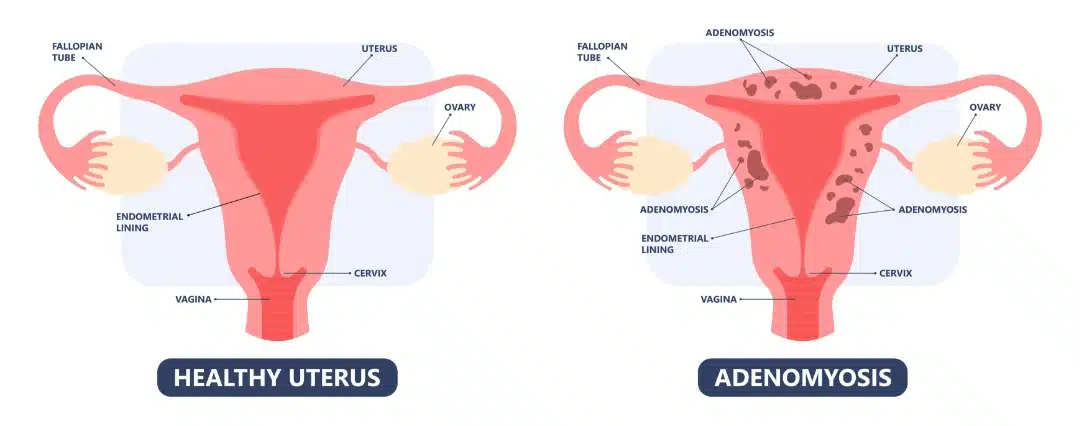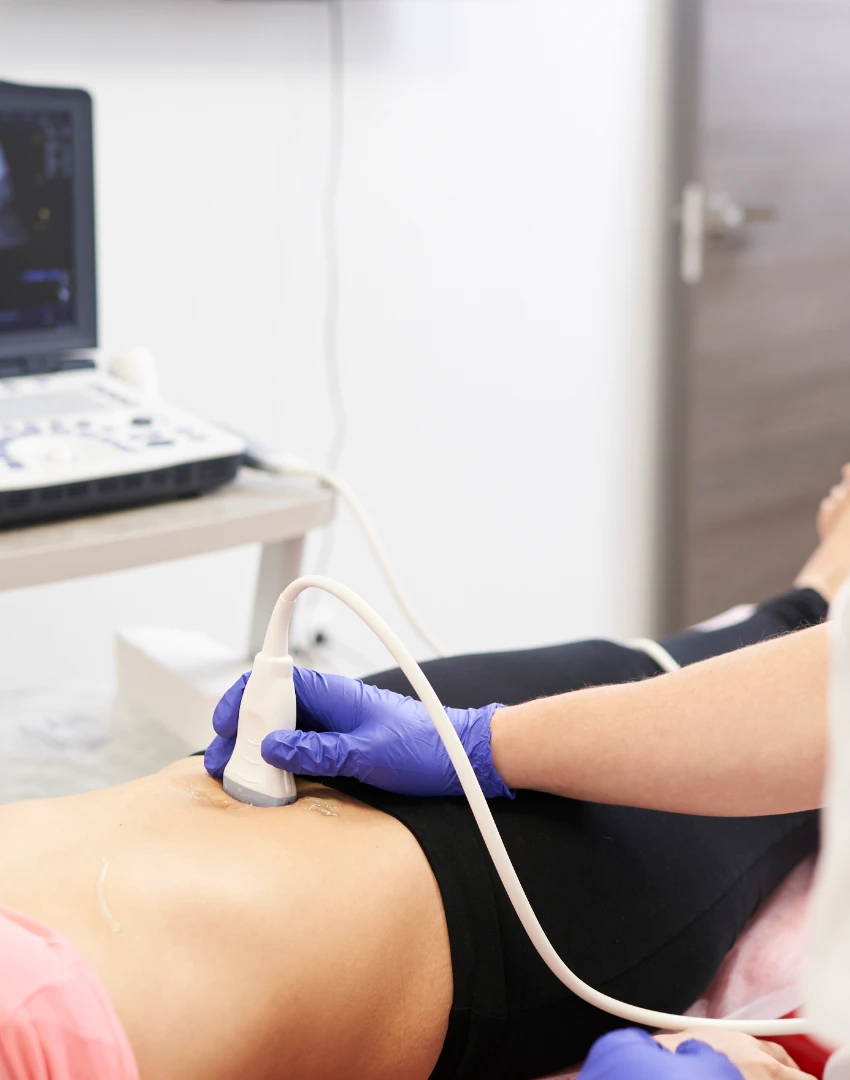
Adenomyosis is a condition in which the tissue that usually lines the uterus grows into the muscular wall of the uterus. While the exact cause is unclear, it is thought to result from a combination of hormonal changes and inflammation. This can lead to an enlarged and painful uterus, heavy menstrual bleeding and discomfort. It is important to consult a gynaecologist if you are experiencing symptoms like prolonged or heavy periods, pelvic pain or pressure. They can provide an accurate diagnosis and recommend suitable treatments to alleviate your symptoms and improve your overall well-being.
Symptoms of adenomyosis include:

While adenomyosis can affect anyone with a uterus, certain factors may increase the risk in Singapore. Your risk may be elevated if you have had uterine surgery, such as a caesarean section. Additionally, if you are in your 40s and 50s, you could be at a higher risk, as adenomyosis tends to develop in this age range. Having multiple pregnancies may also be a risk factor. However, it is important to note that the condition’s exact cause is not fully understood.
Adenomyosis can be identified through a thorough review of your medical history and a pelvic examination that reveals an enlarged uterus. A pelvic ultrasound typically displays thicker muscular walls within the uterus.
If you have concerns or symptoms related to adenomyosis, it is advisable to consult your gynaecologist for a proper assessment and guidance tailored to your situation.

Adenomyosis can contribute to fertility issues, but not all individuals with the condition will experience infertility. If you are concerned, consult your gynaecologist.





Aster Gynaecology © | All Rights Reserved.